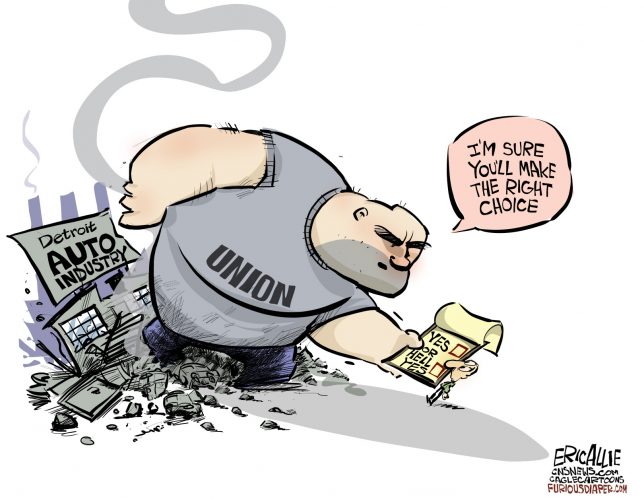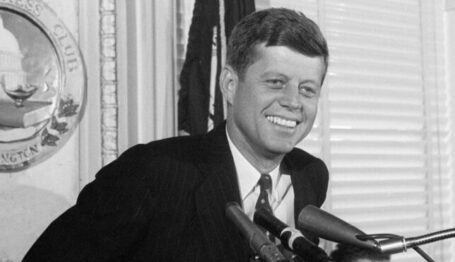Labor Watch
The Failing United Auto Workers Strikes Out Again
 Image credit: goo.gl/wAmskL
Image credit: goo.gl/wAmskL

After another stinging failure to unionize workers, the United Auto Workers (UAW) may soon find itself on life support.
On November 9, workers at the Fuyao Glass America plant in Moraine, Ohio, voted 2-to-1 (886 to 441) against joining the UAW. The defeat—which the UAW blames on “anti-labor tactics and intimidation by management”—is particularly galling considering that the factory was unionized under the Communications Workers of America as recently as 2008, when it was closed by General Motors and later sold to Fuyao.
Moraine workers are the latest in a series of factories to reject UAW membership. On August 3-4, we covered workers’ nearly 2-to-1 (2,244 to 1,307) vote against UAW at the Nissan plant in Canton, Mississippi. Despite calling in support from around the country for its race-baiting campaign, the UAW couldn’t convince workers they’d be better off joining the failing union. Instead, Nissan workers followed Volkswagen workers in Chattanooga, Tennessee, who voted 712-626 against joining the UAW in 2014.
In his November 3 piece in the Washington Examiner, F. Vincent Vernuccio notes the failure of the union to improve conditions for workers at the Moraine plant when it was still owned by General Motors, a company largely organized by UAW:
According to reporting in the Wall Street Journal, the UAW struck a deal with GM that shut the 2,500 Moraine workers out of the auto recovery, barring them from a transfer to another plant. The reason? The employees weren’t part of the UAW.
UAW’s purported callousness towards its members isn’t surprising considering very few of them ever voted to join the union. As David Agnew notes in the March 2017 edition of Labor Watch,
In 1941, Ford Motor Company was organized by the UAW, but today no employee from that time remains on the payroll. That means no worker at the firm has ever once voted to be represented by the union. Yet according to the doctrine known as the “presumption of majority support,” the UAW has escaped having to earn workers’ support in a new election for more than seven decades.
Under the National Labor Relations Act (NLRA), which established much of the body of labor-employer law, unions can bypass secret ballot elections if the employer in question agrees to unionize its employees, or a majority of workers sign membership cards – known as “card check.”
The United Auto Workers once rallied some 1.5 million members in 1979. Today that figure has plunged by 75 percent, causing a steep decline in union revenues and forcing UAW to raise dues on remaining members by some 25 percent in 2014. The more losses it racks up the bleaker the auto union’s future looks. As then-president Bob King said in 2011, if UAW failed to organize plants like those in Ohio and Mississippi, “I don’t think there’s a long-term future for the UAW, I really don’t.”
Earlier this month, Vernuccio co-launched Moving Unions Forward—a reform group—with Terry Bowman, a former UAW member profiled in CRC’s Labor Watch. Bowman was an hourly employee for Ford motor Company in Dearborn, Michigan, for 20 years – a company his father, brother, aunts, and uncles also worked for. Yet Bowman, a UAW member, was never given the chance to vote to join the union, despite paying dues for two decades. Moving Unions Forward aims to move unions out of their “20th century business model,” Vernuccio says in the Washington Free Beacon, which “is more about the union and less about the worker,” and give workers the option to join and support unions which put their interests first.
Read David Agnew’s full report on “Unions Without Elections” here.



